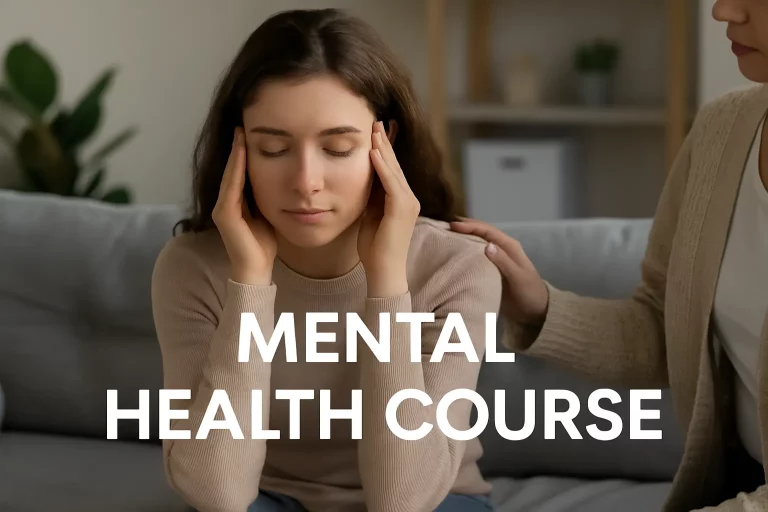If you’ve ever found peace in the pages of a book, you already know that reading can be more than a hobby; it can be a lifeline. In moments of stress or anxiety, a good story has the power to transport us, calm us, and help us feel grounded again.
Reading is a silent form of healing. It slows our thoughts, softens our stress, and gives our minds a much-needed place to rest. And as it turns out, science backs up what many of us already feel to be true.
In this article, we’ll uncover how reading helps reduce stress, improve brain function, and nurture your mental health all through the simple act of turning a page.

What Happens to the Brain When You Read?
Reading may appear quiet on the outside, but it sparks intense activity in the brain. From the moment your eyes scan a page, a complex web of neural activity begins, engaging regions responsible for language, memory, imagination, and even emotion.
Let’s find out some references for better understanding:
| Brain Effect | What it Means | Why it matters |
| Multiple Brain Regions Activated | Engages visual, language, and reasoning areas | Enhances comprehension, imagination, and thinking |
| Stronger Neural Connections | Boosts connectivity in the somatosensory cortex and beyond | Improves mental processing and sensory involvement |
| Improved Memory & Focus | Builds memory retention and trains attention. | Helps reduce mental fatigue and strengthens learning |
| Emotional & Empathetic Engagement | Activates regions tied to empathy and emotional awareness | Enhances emotional regulation and lowers stress |
| Mental Escape from Stress | Immerses the brain in a narrative, shifting attention away from stressors | Promotes calmness and relaxation |
| Long-Term Brain Health Support | Keeps the brain mentally active and engaged over time | May reduce cognitive decline and improve mental resilience |
How Reading Reduces Stress :
Reading lowers physiological signs of stress
Studies from the University of Sussex found that reading can reduce stress levels by up to 68%, lowering heart rate and easing muscle tension, often more effectively than listening to music, drinking tea, or going for a walk.
It redirects your mind away from anxiety triggers
When you’re absorbed in a book, your brain shifts focus away from everyday stressors, offering a mental escape. This shift helps break the cycle of rumination (overthinking), which is common in people experiencing anxiety or emotional overload.
or sit amet, consectetur adipiscing elit. Ut elit tellus, luctus nec ullamcorper mattis, pulvinar dapibus leo.
Promotes deep mental relaxation through immersion
One of the most powerful ways reading reduces stress is by creating a deep sense of mental immersion. When you’re fully engaged in a story, your brain enters what’s known as a “flow state”– a condition of complete focus where time seems to slow down, and distractions fade into the background
Reading mimics the calming effects of meditation
When you read, your breathing naturally begins to slow, your muscles relax, and your mind shifts into a more focused, restful state. This is because reading activates the parasympathetic nervous system, the part of the body responsible for calming you down after a stressful event. As you become absorbed in the words on the page, the brain reduces production of stress hormones like cortisol, helping you feel more balanced and centred
Builds emotional resilience
One of the most subtle yet powerful ways reading reduces stress is through emotional connection. When we read about characters facing hardship, loss, growth, or transformation, we don’t just follow the plot; we feel it. This emotional engagement helps readers develop empathy, allowing us to understand perspectives different from our own.
Encourages healthy screen-free downtime
Reading offers a much-needed alternative. It gives your brain a chance to slow down and disconnect from the constant stimulation of digital media. Whether it’s a paperback novel, a magazine, or a printed poem, reading encourages intentional, screen-free relaxation that’s gentler on your eyes and more nourishing for your mind.
Establishes routine and control
Unlike many other habits, reading is low-pressure and flexible. You don’t need an hour or a special location; even ten minutes in a quiet corner can bring the benefits. Over time, these moments of consistency help establish a greater sense of control over your time and mental space, which is especially important during stressful periods when everything else feels out of your hands.
This horizontal bar chart, “Why Reading Is Good for the Brain,” visually highlights the key cognitive benefits of reading, along with their relative impact. This can work well as a visual aid in your blog to make the section more engaging and easier to understand for readers.

Conclusion
In a world that often feels chaotic and overwhelming, reading offers a rare kind of refuge, a calming space where your mind can slow down, your thoughts can settle, and your emotions can reset. It’s more than just a leisure activity. Reading is a science-backed tool for reducing stress, enhancing brain function, and supporting emotional well-being.
From enhancing memory and focus to promoting empathy and emotional resilience, the benefits of reading are far-reaching and long-lasting. It engages your brain in powerful ways, mimicking the calming effects of meditation and providing much-needed mental stillness. By establishing a reading routine, even for just a few minutes a day, you’re actively taking care of your mind
Frequently Asked Questions (FAQs):
Can reading help reduce stress, or is that just a myth?
Yes, it can, and it’s backed by science. Studies (including one by the University of Sussex) have shown that reading can lower stress levels by up to 68%. Just six minutes of quiet reading can reduce heart rate and ease muscle tension, making it more effective than many other common relaxation methods like music or walking.
What kind of books are best for stress relief?
It depends on what you enjoy! Fiction, especially uplifting or immersive stories, can be very effective because it help you mentally escape. But non-fiction that inspires or soothes, like self-help, poetry, or even nature writing, can also promote calm. The key is to read what relaxes and engages you.
How long should I read each day to feel the benefits?
Even 10–15 minutes a day can make a noticeable difference. The benefits build over time, especially if reading becomes part of a daily routine (like before bed or during lunch breaks). Consistency matters more than how long you read.
Is reading better than screen-based relaxation, like watching TV?
In many ways, yes. Reading is less stimulating and more immersive, helping your brain relax rather than stay hyper-alert. It also doesn’t emit blue light, so it’s much better for your eyes and sleep, especially in the evening.
Can reading improve my mental health long-term?
Absolutely. Regular reading is linked to lower levels of anxiety and depression, better emotional regulation, and improved cognitive function. It helps build resilience, empathy, and emotional clarity, all of which support your mental well-being over time.
Explore Hurak’s more courses:
- Emergency First Aid at Work (1‑Day)
A fully HSE‑compliant, Level 3 course designed as a one‑day practical training session. Ideal for those in low‑risk workplace environments, this course covers essential life‑saving skills such as CPR, choking response, and managing minor injuries, earning a valid certificate the same day. - Emergency First Aid at Work (Online Refresher)
This annual refresher keeps your Level 3 Emergency First Aid at Work skills sharp. Featuring updated techniques and a 25‑question online assessment, it ensures continued competence for first‑aiders, especially beneficial for security staff (e.g., SIA licence holders). - First Aid at Work (3‑Day)
A comprehensive, three‑day Level 3 course designed for workplace first‑aiders, this program provides in-depth training on a wide range of emergencies, including major injuries and illnesses, equipping learners with practical skills and confidence to handle serious workplace incidents. - Level 2 Basic First Aid (Online)
A foundational online course that teaches you to confidently manage minor injuries like cuts, burns, scrapes, and bruises. Includes a 10‑question assessment (70% pass mark) with unlimited retakes, perfect for those seeking a solid, self‑paced introduction to first aid. - Advanced Level 3 First Aid at Work (Online)
An advanced, self-paced online qualification that covers lifesaving techniques and immediate emergency response. This course takes first aid to the next level, offering advanced skills for those responsible for safety in higher-risk environments. - Mental Health First Aid (MHFA)
An internationally recognised live tutor‑led course available online or in-person, designed to help participants identify, understand, and offer initial support for mental health concerns, including substance use. Perfect for managers, HR professionals, and anyone wanting to support mental wellbeing in the workplace. - Level 3 Paediatric First Aid (2‑Day)
A specialised two‑day course focusing on infants and very young children. Aimed at parents, nannies, teachers, and childcare providers, it teaches essential first‑aid techniques for emergencies involving babies (0–1 years), covering both theoretical and practical skills.





